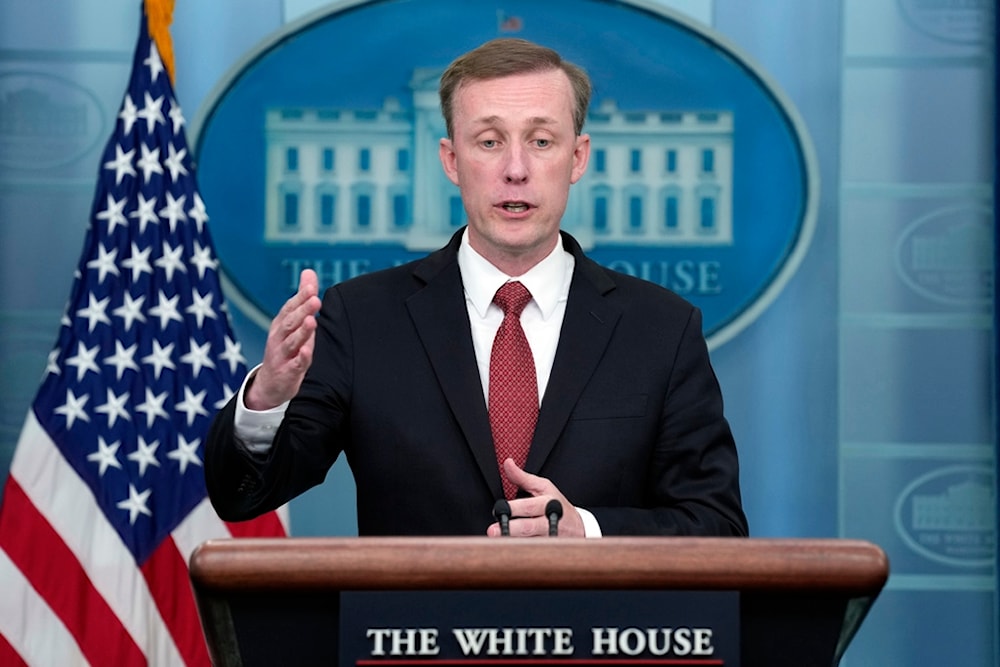Netanyahu, Sullivan discuss Rafah invasion
Despite international backlash against the Israeli onslaught in Gaza, the United States and "Israel" continue to discuss the resumption of the war on Gaza.
-

White House National Security Advisor Jake Sullivan speaks during the daily briefing at the White House in Washington, Tuesday, October 10, 2023. (AP)
Israeli Prime Minister Benjamin Netanyahu held a meeting in occupied al-Quds with White House National Security Advisor Jake Sullivan to discuss the resumption of the genocide in Gaza, namely the invasion of Rafah.
They further reviewed humanitarian aid deliveries into Gaza, as well as the latest developments regarding the retrieval of Israeli captives and the northern front with Hezbollah along the Lebanese-Palestinian border, Netanyahu's office reported.
Sullivan and Saudi Crown Prince Mohammed bin Salman had also convened to discuss updates regarding the defense agreement between their respective countries.
Prior to the start of the war on Gaza, the Palestinian Authority had agreed for Riyadh to normalize relations with "Israel" without the granting of Palestinian statehood. That agreement came to a complete halt when "Israel" launched its genocidal campaign in Gaza.
On May 5, Sullivan told the Financial Times that the White House would not be signing a security agreement with Saudi Arabia without the latter agreeing to normalize ties with the Israeli occupation.
This comes amid international warnings against the Israeli invasion of Rafah, which risks stopping humanitarian operations in Gaza, according to the World Food Programme.
UN aid chief warns of 'apocalyptic' consequences of shortages in Gaza
The UN humanitarian assistance chief has warned that "Israel's" continued starvation and blockade of humanitarian aid delivery in the beleaguered Gaza Strip might have "apocalyptic" outcomes.
On Sunday, Martin Griffiths, the UN Under-Secretary-General for Humanitarian Affairs and Emergency Relief Coordinator, stated that "Israel's" airstrikes on Rafah have cut vital assistance crossings, resulting in gasoline, food, and medical shortages in Gaza.
Griffiths warned that if fuel runs out and the aid cannot reach the people who desperately need it, famine will no longer be "looming but present," which is going to be "hard, difficult, and apocalyptic."
He estimated that 50 trucks of supplies per day may reach the hardest-hit areas north of Gaza via the restored Erez gate. However, battles near the Rafah and Karem Abu Salem crossings in Gaza's south following the Israeli invasion "effectively blocked" crucial lines.
Griffiths said the aggression in Rafah was "exactly what we feared it would be," as gasoline, food, and medical supplies ran out, adding that the operation is a "disaster" for those who have been relocated four or five times to the area.
The UN reported on Saturday that 800,000 Palestinians have been "forced to flee" "Israel's" assault on Rafah.
Read more: Amid ill-advised Rafah invasion, 'Israel' further isolated, divided

 3 Min Read
3 Min Read








